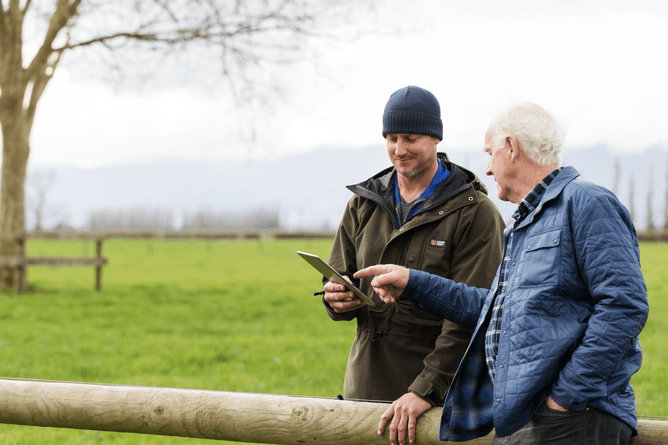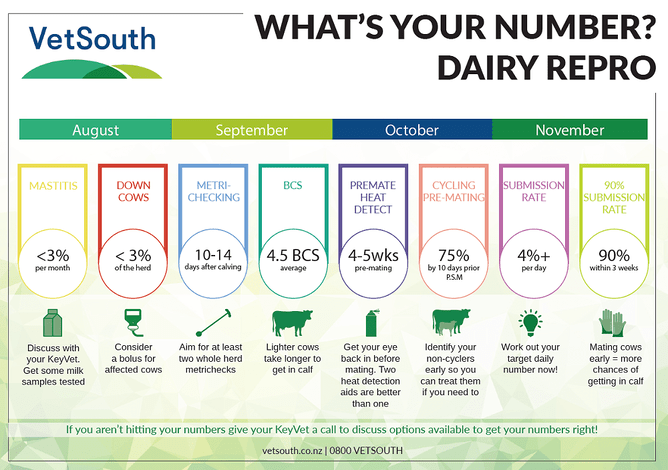Keeping a dairy mating programme in high gear requires a daily commitment to following protocols and investing the necessary time to make it work.
Establishing a pregnancy is a step-by-step process that begins in the previous lactation.
Fresh cows are uniquely challenged by the stress of calving and a suppressed immune system, at a time when their energy intake cannot keep up with demands. The result is a negative energy balance and a greater risk of metabolic and reproductive diseases such as metritis.
Transition cow management is critical to prepare cows for calving, as well as providing the nutrients they need to improve their energy status.
With a delayed return to a positive energy balance, recently calved cows will not return to healthy reproductive cyclicity, causing delays in conception.
Even after cows return to healthy cycling, additional factors will impact their reproductive efficiency, including:
Missed heats: Cows that aren’t bred when in oestrus will not become pregnant.
Reproductive disease: Several diseases can have a major impact on cows becoming pregnant, retaining an embryo and carrying a foetus to full term.
Ovarian function: Cows with ovaries that are static, anovular, or have ovarian cysts will have low fertility and will likely fail to exhibit estrus or become pregnant.
Environment: Cows that are stressed by socialisation, housing or weather extremes will experience reduced fertility.
Noncompliance of protocols: Delaying or missing a step in a synchronisation/non-cycler treatment programme can reduce its effectiveness tremendously.
Our veterinary teams are here to help tailor your farm’s needs for a successful repro season. While it may seem overwhelming to get everything dialled in whilst keeping on top of other farming jobs, rest assured that help is at hand.
Make good repro great!
1. Dedicated and consistent efforts
Successful reproduction requires absolute commitment by all involved.
Dedicated heat detection and insemination by AI tech.
Accurate execution of synchronisation programmes in line with your KeyVet’s recommendation.
2. Well researched tools
Choose reproduction tools and heat detection aids that have a proven track record of success. We have experience using many methods, so we are happy to discuss with you what might improve your heat detection.
Avoid products and programmes that lack a scientific basis.
Use only well-researched synchronisation/non-cycler treatment programmes.
3. Early non-cycler identification
Non-cycling cows must be identified accurately and quickly. Ideally before planned start of mating to ensure the best response to treatments.
4. Proper nutrition and management
Properly transitioning cows before calving.
A balanced post-calving diet which changes with grass quality and production.
Stressors that reduce fertility should be reduced or eliminated.
5. Disease protection
Ensure good trace element levels to have the best immunity and fertility in your herd. Book in for routine TE testing!
Vaccinations must safeguard reproduction.
Herd vaccination programmes should help protect against reproductive diseases, like BVD, that decrease fertility and increase risk of abortions.
Repro dials down to getting the basics right. While Mother Nature can throw what she wants at us, having your team and your herd ready for repro season ahead of time will make life easy. Our experienced KeyVet team are here to help you get there.
Need a new repro poster for the shed? Ask our team to print you out a new one!
--------
Zoetis New Zealand Limited. Tel: 0800 963 847; www.zoetis.co.nz. CIDR is a registered trade mark of InterAg. ACVM No. A4559


